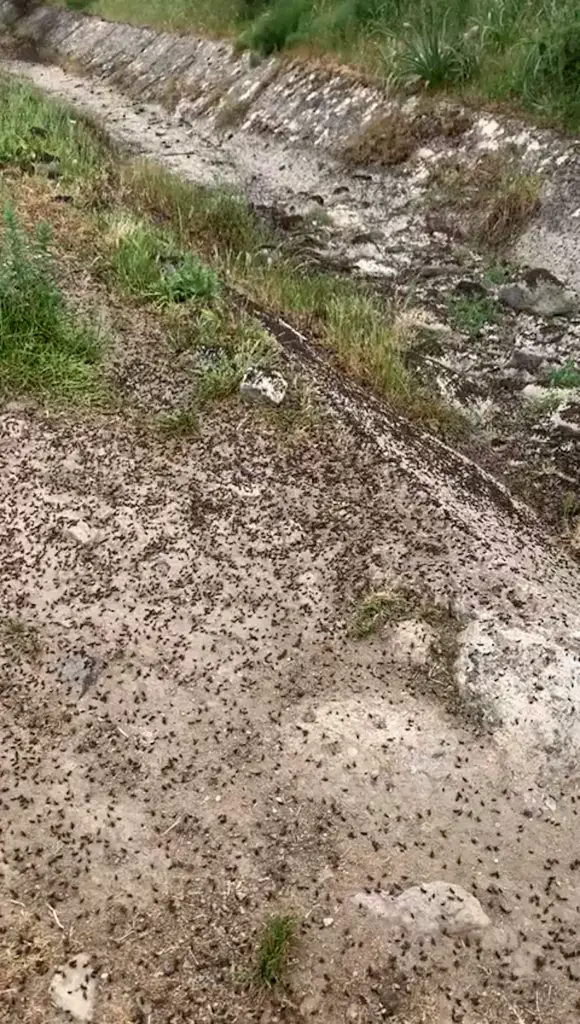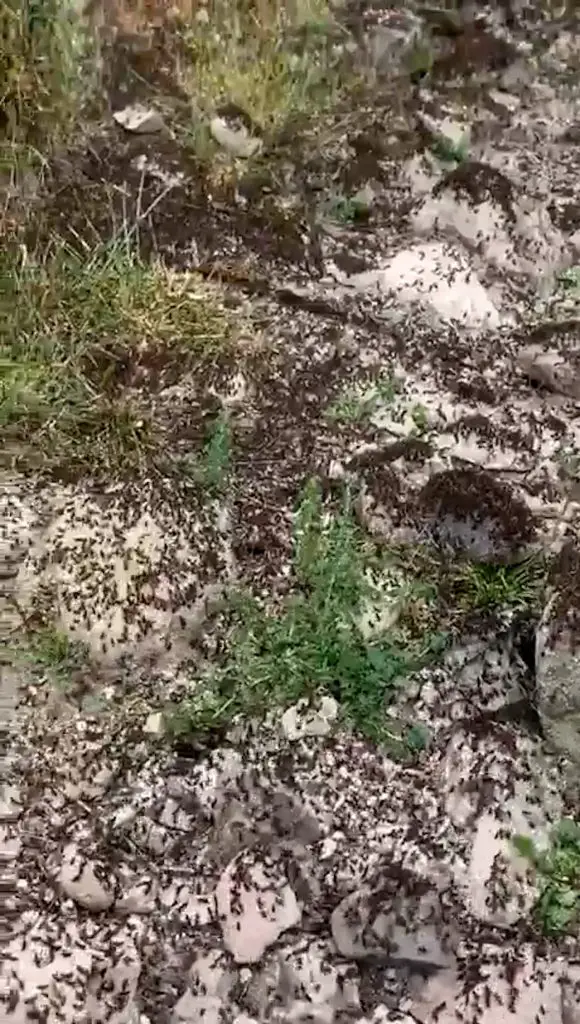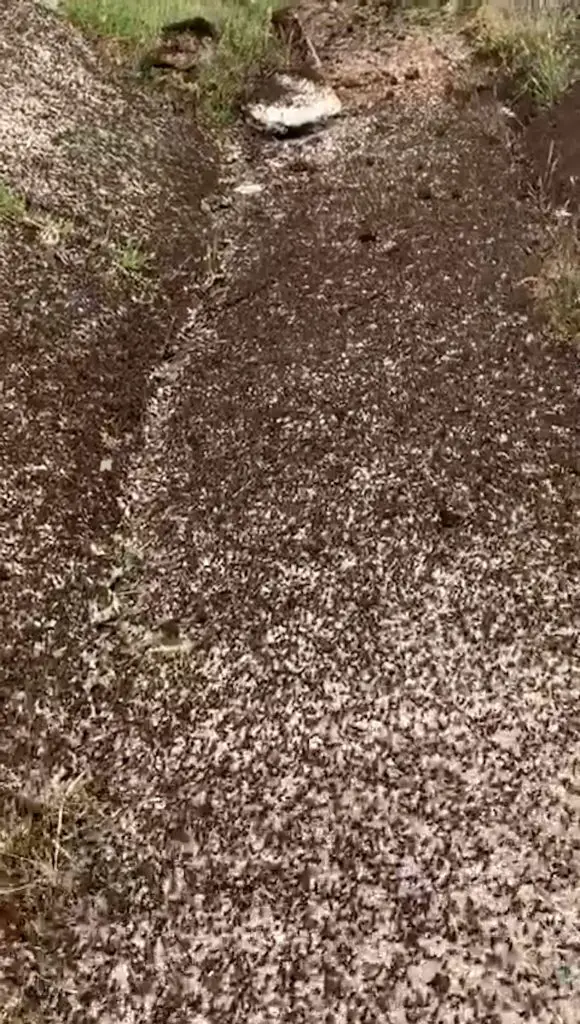Story By: Ana Marjanovic, Sub-Editor: Michael Leidig, Agency: Newsflash
This is the moment millions of locusts devour the Sardinian countryside, posing a huge threat to farmers for the fourth consecutive year.
The video was shared on Twitter by politician Desire Manca of the populist Five Star Movement where it has been viewed 33,000 times.
She accompanied the clip with the message: “Even farmers are on their knees. This is the situation of the locust invasion in the area of Ottana. A real disaster.

“Despite the intervention of workers from Laore and the province of Nuoro, the emergency situation continues.”
The politician added: “Additional human resources are needed, I enquired with an urgent question raised today.”
According to reports, the countryside of Ottana and other rural areas in Sardinia’s Nuoro Province have been devastated by the swarm of locusts.

Farmers in central Sardinia are battling, for the fourth consecutive year, to deal with the insect invasion.
The affected areas include Noragugume, Bolotana, Illorai, Olzai, Teti, Sarule, Sedilo, Barbagia di Nuoro, and Ottana, where the epicentre of the invasion is located.
About 25,000 hectares have already been affected, a number that is expected to increase as more eggs hatch in the warm weather.

To deal with the plague last year, the regional government allocated EUR 800,000 for a three-year period including EUR 200,000 for this year.
In 2021, on the recommendation of agricultural official Gabriella Murgia, the regional government reportedly awarded EUR 2 million to farmers who suffered crop loss to locusts during that year.
Meanwhile, agricultural experts and representatives from the University of Sassari are formulating an action plan to fight off the locust invasion by using insects that feed on the eggs and a natural fungus that infects locust hoppers and stops them feeding so they die off within one to three weeks.



